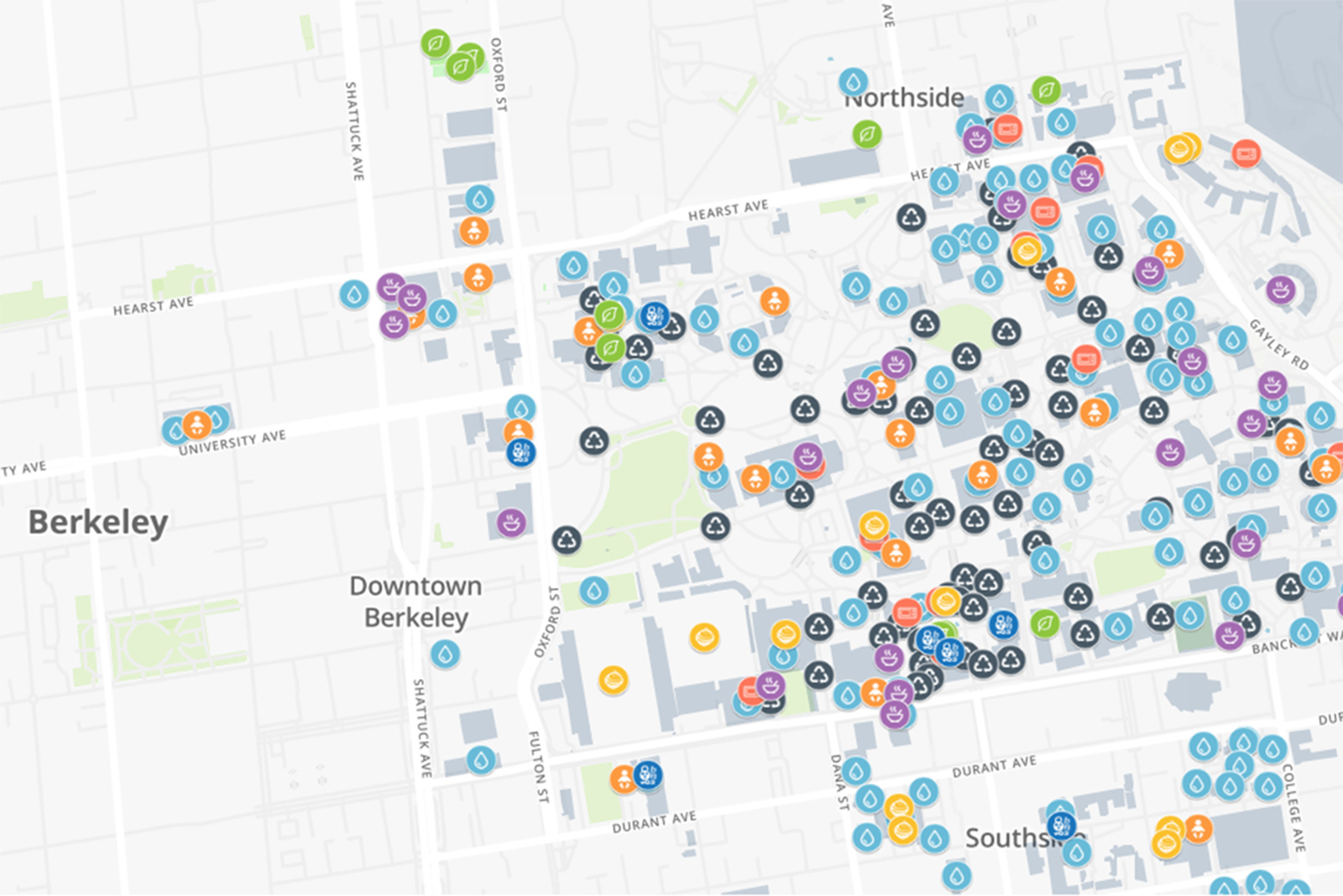Research Report
Building Equitable and Inclusive Food Systems at UC Berkeley: The Foodscape Mapping Project Report
The UC Berkeley Foodscape Map aims to both reveal barriers to the full participation of historically marginalized community members in food-related learning and practice, and highlight opportunities for — and successes in — overcoming such obstacles.

The University of California, Berkeley is experiencing an unprecedented surge of interest in food and agriculture, as reflected by its academic and educational programming, student-led initiatives, and community outreach activities. And yet, as passion for food and justice grows across campus, many community members still encounter major obstacles to meaningfully diverse, equitable, and inclusive experiences in the campus food system. In fact, a 2014 Campus Climate Survey revealed that one out of every four members of the UC Berkeley community experience exclusion based on some aspect of their identity. Simultaneously, 39 percent of undergraduates and 23 percent of graduate students experience food insecurity, forced to choose between paying for food, housing, and other basic needs while attending school in one of the most expensive areas of the country. Many staff—particularly UC Berkeley’s lowest-paid workers, which includes food service and custodial staff, as well as lecturers and postdoctoral fellows—also struggle with basic needs security.
The growing food movement on campus thus presents a strategic opportunity to address the need to transform our campus climate, fully integrating diversity, equity, and inclusion into Berkeley’s programs, capacity building, and campaigns. Led by the Berkeley Food Institute (BFI) since 2015, the Building Equitable and Inclusive Food Systems at UC Berkeley project has brought together more than 150 collaborators from across campus to bridge the gaps between our campus food system and the communities it serves.
As part of this project, the UC Berkeley Foodscape Map offers extensive data on the structural factors affecting the UC Berkeley food system, highlighting a variety of food-related activities on campus through the lenses of diversity, equity, and inclusion. Developed through ongoing community dialogue and student research projects, this map aims to both reveal barriers to the full participation of historically marginalized community members in food-related learning and practice, and highlight opportunities for—and successes in—overcoming such obstacles.